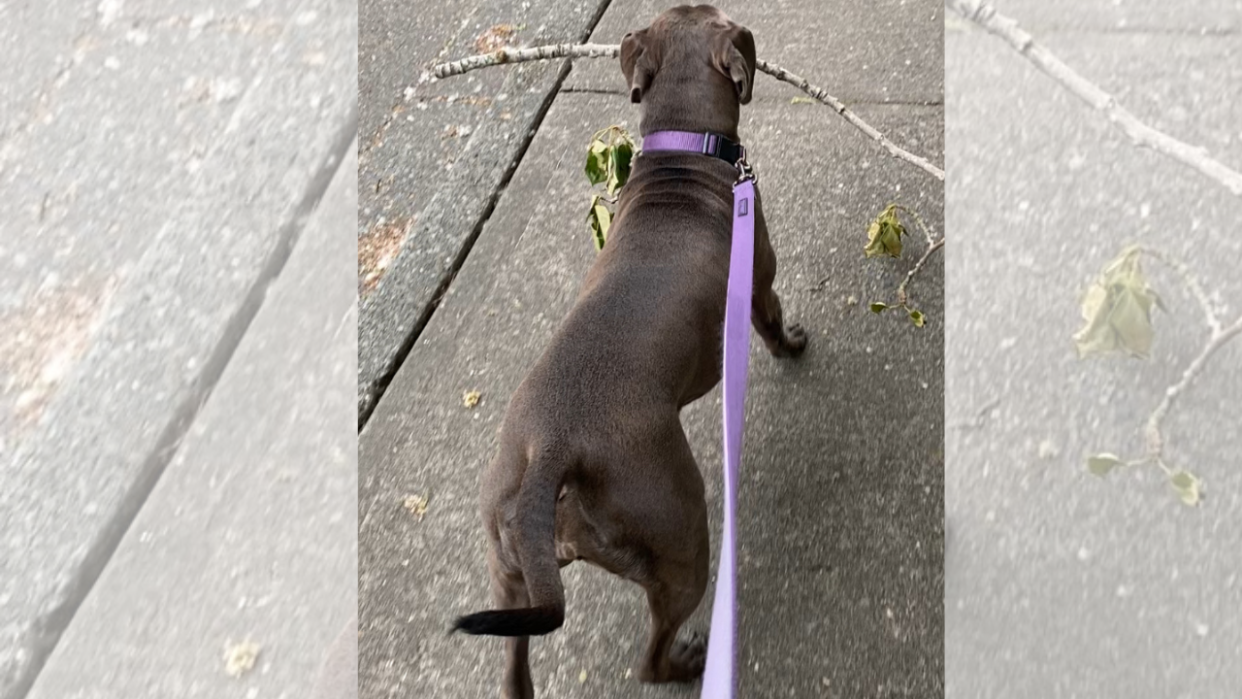Reports of highly contagious dog virus linked to Renton park

RENTON, Wash. - A highly contagious and deadly disease for dogs has been traced back to a park in Renton.
According to a sign posted at Petrovitsky Park, there have been reports of canine parvovirus, often called "parvo," infections in dogs that have recently visited the park.
Petrovitsky Park is not an off-leash dog park.
It's unclear how many cases have been linked to the park.
FOX 13 is working to confirm if there have been any deaths.
What is Parvovirus?
The virus attacks white blood cells and the gastrointestinal tract of dogs. In puppies, the virus can also damage the heart muscles, according to the American Veterinary Medical Association (AVMA).
It spreads when dogs come in contact with other infected dogs or contaminated feces. It is also spread from dogs having contact with surfaces contaminated by the virus,
All dogs are susceptible to canine parvovirus, although some dogs are at greater risk than others, according to AVMA. These include puppies between 6 and 20 weeks of age, unvaccinated or not fully vaccinated dogs.
Certain dog breeds like bull terriers, dobermans, rottweilers, German shepherds and English springer spaniels are more susceptible than others.
Signs of parvovirus
According to AVMA, the signs of parvovirus infection vary from dog to dog, depending on the severity of the infection. These are some important signs to watch out for:
Lethargy
Loss of appetite
Vomiting
Severe, often bloody, diarrhea
Abdominal pain and bloating
Fever or low body temperature (hypothermia)
If your dog is experiencing these symptoms, contact your vet immediately.
The vomiting and diarrhea can cause dehydration, damage to the intestines and immune system, which can lead to septic shock. Death from this can occur within 48 to 72 hours after signs first appear.
Preventing the spread of parvo
If your dog is sick or experiencing signs of parvo, keep them home
The best way to prevent the spread of parvovirus is to pick up after your pet, and to make sure their vaccines are up-to-date. Dogs typically get their DHPP vaccines every three years. DHPP vaccinates against distemper, hepatitis parainfluenza and parvovirus.
MORE PET STORIES FROM FOX 13
Famous casino cats need new home after closure
Sequim animal cruelty case: 42 dogs, 429 birds seized
Adams County animal shelter overwhelmed with available pets
2 new off-leash dog parks coming to Seattle area
To get the best local news, weather and sports in Seattle for free, sign up for the daily FOX 13 Seattle newsletter.

